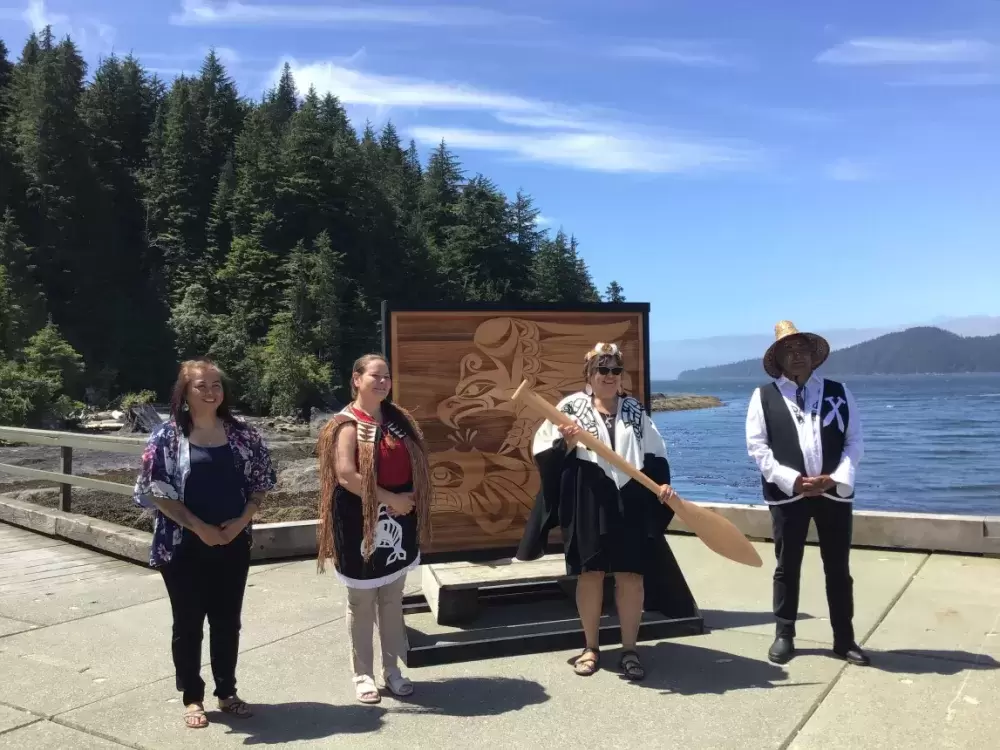Pacheedaht First Nation are celebrating the signing of a Memorandum of Understanding with the Canadian Coast Guard that will see the construction of a multi-purpose Marine Safety Centre on the southwest coast of Vancouver Island.
According to PFN Referrals Coordinator Kristine Gatzke, Port Renfrew, which is located at the mouth of the Juan de Fuca Straight, is not covered by the Canadian Coast Guard for marine emergencies.
“There is nothing for marine emergencies; that’s why it’s important to get this going,” said Gatzke.
She went on to say that residents of Port Renfrew have to call their American relatives across the strait in the event of an emergency.
“We have to call the U.S., the Makah has said the Canadian Government needs to do their part. We don’t have medical services out here,” Gatzke continued.
According to the Canadian Coast Guard, the MOU outlines a path forward for the Coast Guard and the Pacheedaht First Nation to build a facility that focuses on marine search and rescue and environmental response services. The agreement also aims to strengthen marine safety and response capacity in the Juan de Fuca Strait.
The Co-Developing Community Response (CDCR) initiative addresses concerns in Indigenous communities located along the marine route serving the Trans-Mountain Expansion Project about the risks of increased tanker traffic related to marine activities, the environment and culturally important and sacred sites in their traditional territories.
Along with the Ditidaht and seven other Vancouver Island First Nations, the Pacheedaht have signed a mutual benefit agreement with Trans Mountain. But the Pacheedaht have concerns about increased tanker traffic that will come with the pipeline expansion. They are also concerned about the possibility of oil spills, but the addition of a Marine Safety Centre is important to the community.
Gatzke said it was about 2013 when the nation began looking at gaps and impacts of increased tanker traffic on PFN traditional territories. She said they spent time learning from the Makah through their marine affairs office in Neah Bay, Wash. The Washington-based Nuu-chah-nulth tribe are particularly knowledgeable and experienced on this issue, said Gatzke, as they have built marine resources and infrastructure in their community.
“We have struggled long and hard to repair relationships with coast guard, DFO…there is not a clear recognition of title in the territory,” Gatzke stated.
With a focus on fixing that relationship, the MOU marks the beginning of PFN and Canada working together.
“We have gone from being simply informed to active partners; the coast guard MOU seemed like a good starting place,” said Gatzke.
Elected Chief Jeff Jones agrees, saying that Pacheedaht elders and community members have always wanted Coast Guard protection.
PFN Administrator April Roper is pleased with the progress but says more work needs to be done. A building site needs to be selected from three possible locations in Port Renfrew.
The Marine Safety Centre will be multi-purpose, having space for partners with similar interests like the RCMP, West Coast Trail Guardians, along with Coast Guard office space.
“We are hoping to have it built in 2022,” said Roper.
Meanwhile, PFN has a vessel that performs monitoring activities in the territory.
“Yes, there will always be a concern about an oil spill in the territory, but having proper equipment and vessels to deal with emergencies situated in territory does provide some comfort,” said Roper. “Better to have little rather than none at all.”







